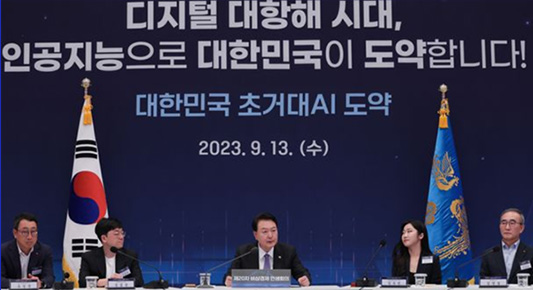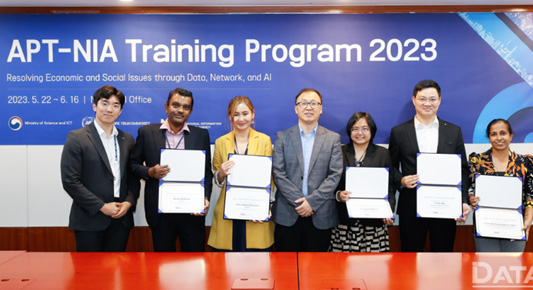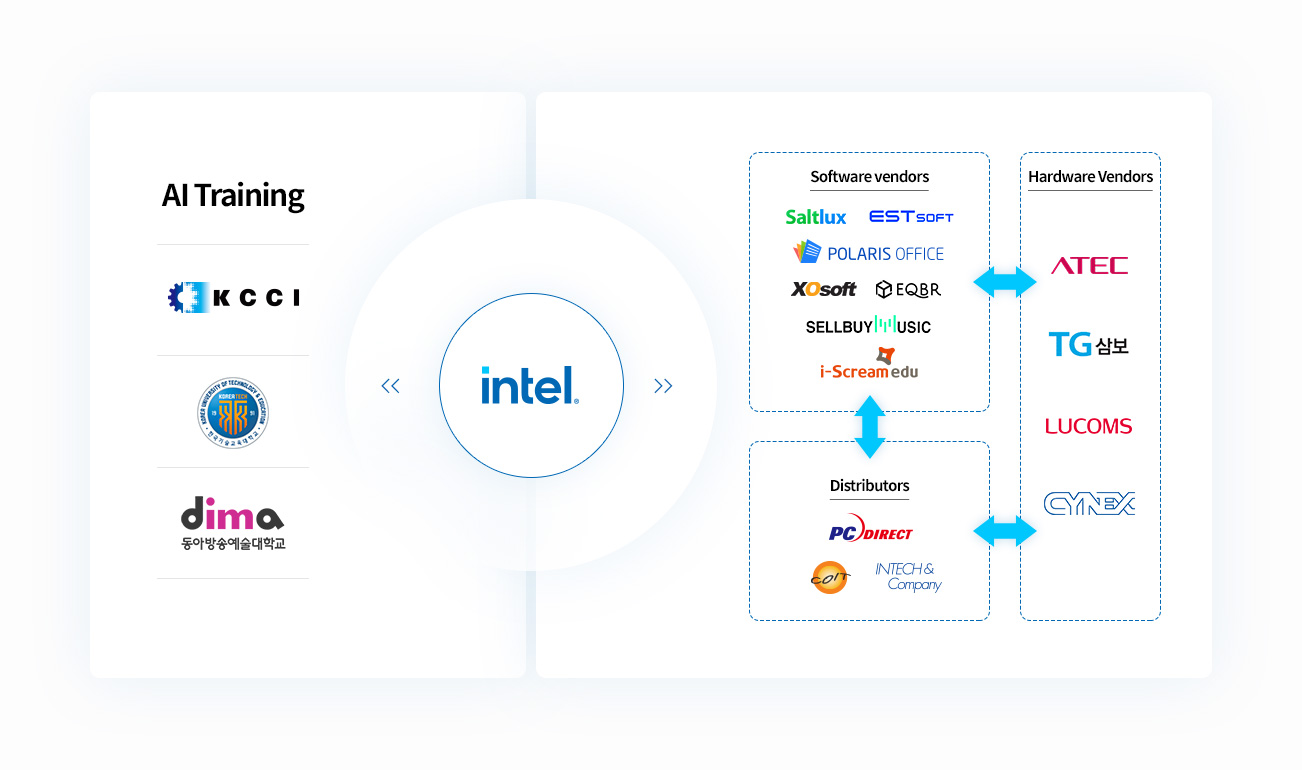Intel Global Enterprise Collaboration Program 2024
New this year, the Intel Collaboration Program is a proof-of-concept program for promising startups in the AI space to help them advance their business models and enter international markets. The program provides services such as Intel developer tools and software portfolio, engineering consulting, customized mentoring using partners and networks, and workshops. For companies wishing to expand into local markets such as India and Singapore, we support local PoC projects, venture showcases, and partner and investor networking to strengthen startups' global capabilities.
Need to study how to adopt super-scale AI on national platforms
The National Institute for Intelligence and Information Society (NIA) released a report on the direction of utilizing private AI platforms in the public sector on the 18th, “To prevent various security issues and leakage of sensitive government data, training data and user queries should be accessible only in a closed government-only cloud.” The report suggested that the government needs a structure to entrust GPU cloud operations to private companies because it is difficult for the government to keep up with the private sector's ability to operate graphics processing units (GPUs).
At the same time, it emphasized that governments need to find a way to ensure that their massive GPU resources continue to be available.
To utilize a private, proven LLM model for a state-based closed network, the report said, the government could consider purchasing pre-training data for the model and learning from scratch, or purchasing a completed private basic model (foundation model) and operating it on a state-based closed network government platform.
NIA Partners with Five Asian Countries to Address Digital Challenges
The program also supported business meetings with companies that want to export, such as LG CNS and NAVER Cloud, to help Korean companies create channels of cooperation with developing countries and expand overseas.
The joint cooperation projects for each country are: Thailand to establish artificial intelligence governance and build an AI platform (97.5 billion won), Mongolia to build a national digital literacy platform (19.5 billion won), Vietnam to establish an action plan to accelerate Vietnam's digital economy (23.3 billion won), Malaysia to build a public sector information security management system (24.1 billion won), and Sri Lanka to build a telecommunications consumer complaint response system (13 billion won).
On the 12th, the NIA discussed the identified projects with domestic and international development cooperation partners such as KOICA and the World Bank, and discussed ways to link them with future KOICA ODA projects and projects of international organizations.





